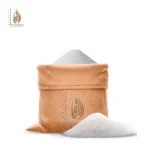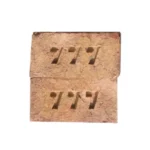Transforming Procurement and Empowering Local Economies in Pakistan
In an ever-evolving industrial landscape, businesses are constantly looking for ways to adapt, innovate, and stay ahead of the competition. But what is it that makes Zarea such a game-changer in the marketplace? It’s not just about offering commodities—it’s about transforming entire industries through smart, efficient solutions that cater to the real needs of businesses. Whether it’s revolutionizing the procurement process or empowering local economies, Zarea is rewriting the rules of commerce in Pakistan.
Let’s dive into the core strategies that set Zarea apart and make it a force to be reckoned with in sectors like construction, agriculture, and B2B trade.
Modernizing Trade – From Physical to Digital
For decades, the procurement of essential materials like cement, steel, and other construction resources relied on manual processes and local networks. This model was riddled with inefficiencies—price fluctuations, limited supplier networks, and middleman issues. In sectors like construction and agriculture, these barriers slowed growth and hindered profitability.
Zarea changed all of that by creating a digital marketplace that eliminates these obstacles. By directly connecting suppliers and buyers, it has transformed a cumbersome process into one that is streamlined, transparent, and efficient. Businesses can now purchase materials with real-time price tracking, ensuring they secure the best deals, with reduced lead times and minimal hassle.
According to a 2023 study by McKinsey & Company, companies that transitioned to digital procurement saw up to 30% savings in operational costs and a significant boost in supply chain efficiency. Zarea’s platform, by enabling live pricing, stock visibility, and vetted suppliers, embodies these benefits and pushes the market toward modernization.
Breaking Down Barriers – Transparency in Commerce
In industries that rely heavily on raw materials, pricing opacity has long been a challenge. Businesses are often left in the dark, uncertain about fluctuating costs and the reliability of suppliers. Zarea solves this issue by offering complete transparency through its digital platform.
The live updates on prices and inventories allow buyers to make quicker, more informed decisions, while ensuring that suppliers remain competitive. This transparency fosters a healthier, more equitable market where businesses—whether large corporations or small-scale suppliers—operate on the same playing field.
A 2022 report from the International Journal of Supply Chain Management supports this trend, noting that companies operating in transparent markets tend to increase efficiency by 20% or more. Zarea’s platform is an example of how transparency drives not only efficiency but also trust in the marketplace.
Strengthening Agriculture – A Modern Solution for Traditional Challenges
Pakistan’s agricultural sector is steeped in tradition, yet it has struggled with modernization. Zarea is actively addressing this by offering farmers access to essential materials, including fertilizers, biomass, and agricultural tools. These modern solutions help increase productivity and improve sustainability.
Zarea’s impact on agriculture isn’t limited to just providing products—it is also making sure these resources are accessible to small-scale farmers by cutting out middlemen and allowing direct sales. This enables farmers to get fair prices for their products and gain access to larger markets.
A 2023 report by the Pakistan Business Council highlighted a 15% increase in revenue for small-scale farmers who leveraged digital platforms to sell their products. By democratizing access, Zarea is not only transforming procurement but also helping uplift local economies.
Empowering Rural Economies – Connecting Local Suppliers to National Markets
Zarea’s influence extends beyond just business efficiencies. The platform is dedicated to fostering inclusivity by ensuring that local suppliers, particularly those from rural areas, have access to larger, national markets. Historically, these suppliers have been limited by geography and scale, but Zarea’s digital marketplace offers a lifeline.
Through Zarea, smaller producers of materials like bricks, cement, and steel are now able to showcase their products to a broader audience, ensuring more consistent demand and better pricing. This democratization of commerce means that businesses of all sizes can benefit, strengthening the overall economy.
The direct connection between rural suppliers and urban markets has helped many small businesses thrive, creating a ripple effect in local communities and contributing to the broader economic landscape of Pakistan.
What’s Next for Zarea? Expanding Horizons
Zarea’s journey doesn’t stop here. As it continues to grow, Zarea is focused on expanding its offerings, improving its platform, and increasing accessibility for businesses across Pakistan. With the upcoming launch of its mobile app, Zarea will make procurement even easier—allowing businesses to purchase materials, track prices, and manage orders in real time, from any location.
But the true essence of Zarea’s future lies in its commitment to continuous improvement. Whether it’s offering more advanced procurement tools, further refining its platform’s user experience, or expanding into new industries, Zarea is set on driving innovation and empowering businesses for years to come.
Conclusion: Zarea—Redefining the Future of Commerce in Pakistan
Zarea is not just a platform for buying and selling commodities—it’s a transformative force in industries like construction and agriculture. By focusing on efficiency, transparency, and inclusivity, Zarea is helping businesses thrive in an increasingly competitive market.
As Zarea continues to innovate, it will undoubtedly play a key role in shaping the future of commerce in Pakistan—building a future that is not only more efficient but also more equitable.
References
- KPMG. “Digital Procurement’s Impact on Global Markets.”
- Oracle. “The Role of Transparency in Supply Chains.”
- Pakistan Business Council. (2023). “Digital Marketplaces: Boosting Local Economies through Inclusivity.”

































